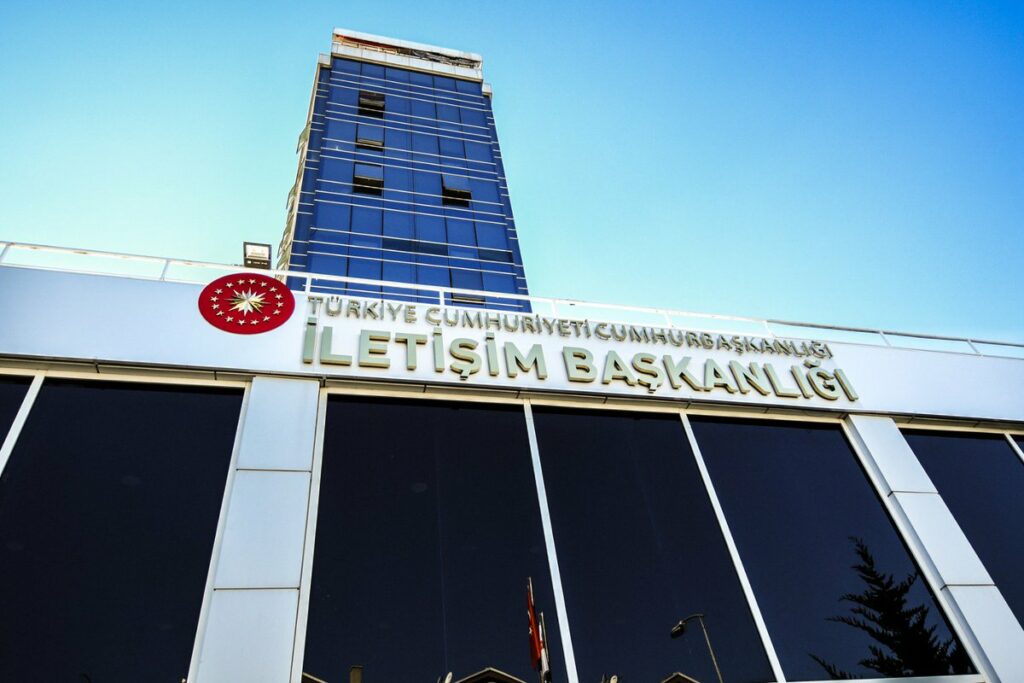Turkish authorities on Tuesday denied rumors that Turkey is planning to take in up to 1 million Palestinians from the Gaza Strip.
📌The claim "Statement from Netanyahu: We agreed with Erdoğan that one million Palestinians will be granted Turkish citizenship and live in Türkiye in exchange for two billion dollars," shared on some social media accounts, is not true.
Our President Recep Tayyip Erdoğan did not… pic.twitter.com/EVKW2B8MPF
— Dezenformasyonla Mücadele Merkezi (@dmmiletisim) November 7, 2023
The rumors, which suggested a mass relocation of Palestinians to Turkey, were dismissed by official sources as unfounded. The Turkish government emphasized its commitment to the safety and security of Palestinians within their own territories rather than facilitating a large-scale migration.
These rumors came a month after Oct. 7 attacks by Hamas militants that resulted in the death of 1,400 people, primarily civilians, and the taking of 240 hostages, leading to a sharp escalation in the region.
The Israeli military’s heavy retaliation, which has killed more than 10,000 people, also mainly civilians, according to local authorities, has been met with international scrutiny and has sparked a wave of pro-Palestinian sentiment across the globe.
The speculation gained momentum after a visit by US Secretary of State Antony Blinken to Turkey to discuss the crisis. Some on social media suggested the visit was linked to potential refugee agreements between the United States and Israel, citing Blinken’s referral to evacuations from Gaza as evidence. Authorities denied this and said the context was foreign nationals waiting to be evacuated from Gaza.
A social media handle even provided a tally of Gazans Turkey, Egypt, Gulf countries and others were willing to take.
The United States and Israel are in discussions with Gulf countries, Egypt, and Turkey to evacuate the people of Gaza and halt the conflict in return. The alleged evacuation process is as follows:
The goal is to evacuate 2.5 million Gazans from the region.
They will be…— Intelligence FRONT (@Intelligencefnt) November 6, 2023
However, no evidence of such discussions or plans has been presented.
Namık Tan, a member of the main opposition Republican People’s Party and a former diplomat, tweeted about the rumors, saying the country’s infrastructure and social services are stretched thin by an influx from Afghanistan, Syria and various African countries. The addition of a large number of Palestinians could exacerbate these strains, according to Tan.
Türkiye, son yıllarda; #Afganistan, #Suriye ve çeşitli #Afrika ülkelerinden kaçan insanların mülteci deposu olmuşken, şimdi de #Gazze’den 750 bin kişinin Türkiye’ye gelme ihtimali konuşulmaktadır
Bu durumun uzun vadede Türkiye’nin #güvenlik, #demografik yapı ve #sosyal barış…
— Namık Tan (@NamikTan) November 7, 2023
Turkey is the leading host country for refugees worldwide with 3.6 million people seeking shelter, according to UN figures.
Anti-refugee sentiment in Turkey has been on the rise for several years, and it gained further prominence in the context of the country’s elections in May. In the campaign leading up to the general election and two rounds of the presidential race, the issue of refugees became a central point of contention.
Former leader of the main opposition Republican People’s Party (CHP), Kemal Kılıçdaroğlu, who challenged incumbent President Recep Tayyip Erdoğan, vowed to repatriate all refugees and illegal migrants, primarily Syrians, within a year in a bid to secure endorsement by Ümit Özdağ, chairman of the far-right Victory Party (ZP). Even Erdoğan, who had previously promoted an open-door policy toward refugees, signaled a change in stance ahead of the elections, further highlighting the shift in the political climate surrounding the refugee issue.
In the end Erdoğan secured another five years when he defeated Kılıçdaroğlu in a runoff on May 28, further extending his two-decade rule.
However, this tough stance on refugees, coupled with increasing nationalist rhetoric, stoked existing anxieties and anti-refugee sentiment among some segments of society, resulting in an increasingly hostile environment for refugees in Turkey.
The growing anti-refugee sentiment is rooted not only in political rhetoric but also in the social and economic challenges the country faces. Refugees are often blamed for exacerbating these issues, despite the complexities of the underlying problems.
Syrian refugees, the largest refugee group in Turkey, have reported increased fear and concern over potential forced repatriation to Syria.

